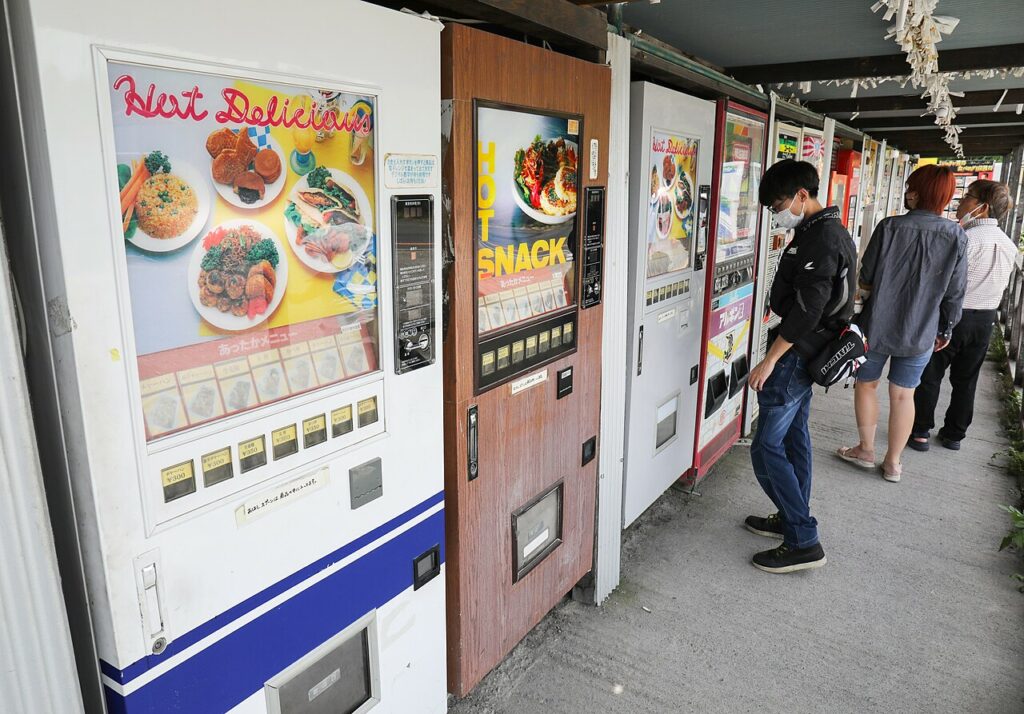Energy drinks, health and the youth: Time to ban sales for under-16s?

Using a vending machine. Image by Sean Kimmons, CC 3.0
Research conducted at the Mayo Clinic raises new concerns about serious implications that energy drinks may have on our bodies. Energy drinks contain stimulant compounds (normally caffeinated beverages), often very sugary and carbonated. The term ‘energy’ refers to the stimulant effect rather than a nutritional descriptor. Over the last several years there has been a major increase in their consumption.
Energy drinks are not subject to medical regulation since they are classified as dietary supplements rather than medications. Yet a standard bottle often contains twice as much caffeine as a cup of coffee, as well as high levels of sugar.
In the new study, scientists examined data from 144 patients who had survived a cardiac arrest following emergency treatment and found that seven of them, aged between 20 and 42, had consumed an energy drink prior to the life-threatening event.
The research appears in the journal Heart Rhythm, titled “Sudden cardiac arrest occurring in temporal proximity to consumption of energy drinks.” This tallies with earlier studies.
There are other concerns, such as those raised by nutritionist Professor Cristina Vogel (University of London): “Energy drinks contain large amounts of caffeine and sugar and offer no nutritional role in children’s diets. They are also harmful to their mental and physical health and hinder learning.”
Energy drinks are particularly popular with younger people, and such drinks are often marketed strongly towards the younger demographic as well as those living in poorer communities. This includes those of school-age.
In the UK, the Labour Party has pledged ban the sale of energy drinks to under-16s.
Sir Keir Starmer, the Party’s leader, said it was “not justifiable or acceptable” for retailers to be selling the highly caffeinated beverages to youngsters and “we will stop it”.
Energy drinks tend to appeal to teens, especially athletes. Such drinks provide temporary benefits such as increased alertness, improved mood and enhanced mental and physical states, according to Dr. Michael Cusimano, a neurosurgeon at St. Michael’s Hospital. The caffeine and taurine levels in energy drinks appear to be responsible for increases in blood pressure and heart rate.
Yet there are other reported downsides. For example, a Chapman University study found that showed that 40 percent of teens aged 13 to 19 who consumed energy drinks reported an adverse effect while ingesting energy drinks. The most common side effects included:
- Insomnia
- “Jittery”
- Heart palpitations
- Abdominal pain
- Nausea, vomiting, or diarrhoea
- Headache
- Chest pain
- Laboured breathing
- Seizures
Perhaps more data is needed, albeit with the data gathered to data indicating a series of concerns that need to be taken seriously. One researcher has suggested establishing a registry where medics can post related concerns about energy drinks.
Energy drinks, health and the youth: Time to ban sales for under-16s?
#Energy #drinks #health #youth #Time #ban #sales #under16s





